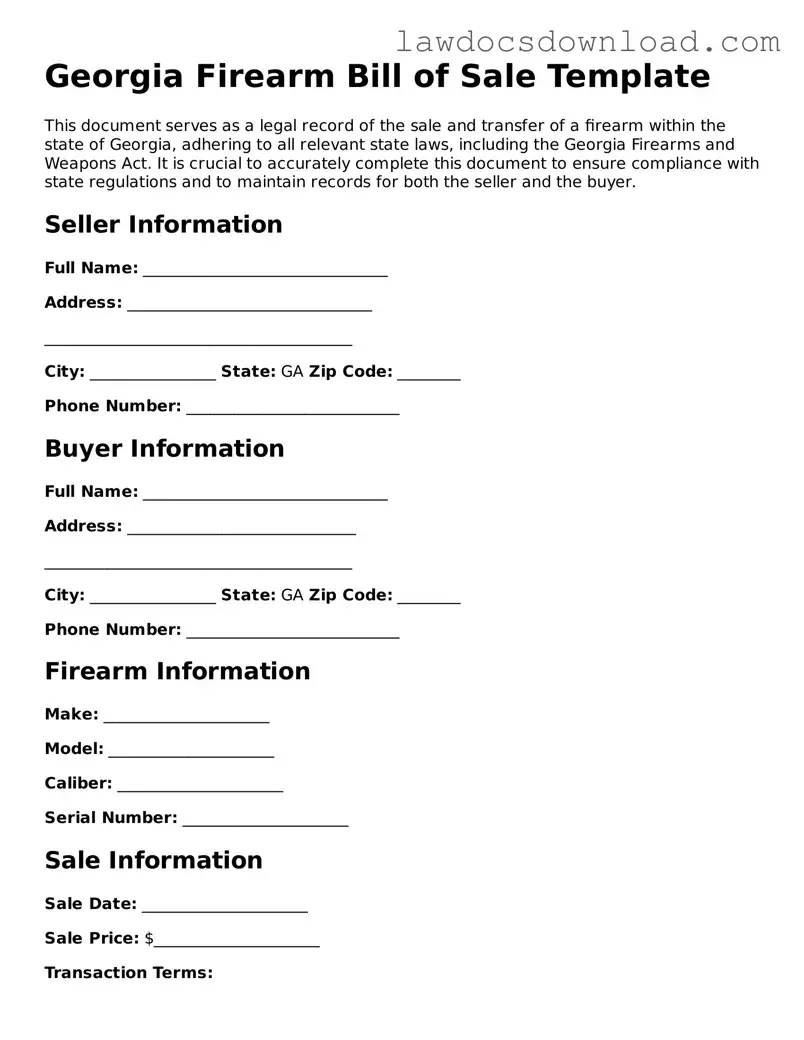Legal Georgia Firearm Bill of Sale Form
The Georgia Firearm Bill of Sale form is a document that verifies the legal sale and purchase of a firearm within the state of Georgia. It serves as a vital record for both the buyer and the seller, outlining specific details about the firearm and the terms of the sale. This form ensures that the transfer of ownership adheres to state laws, providing peace of mind and legal protection for all parties involved.
Launch Firearm Bill of Sale Editor Here

Legal Georgia Firearm Bill of Sale Form
Launch Firearm Bill of Sale Editor Here

Launch Firearm Bill of Sale Editor Here
or
Free Firearm Bill of Sale
Get this form done in minutes
Complete your Firearm Bill of Sale online and download the final PDF.